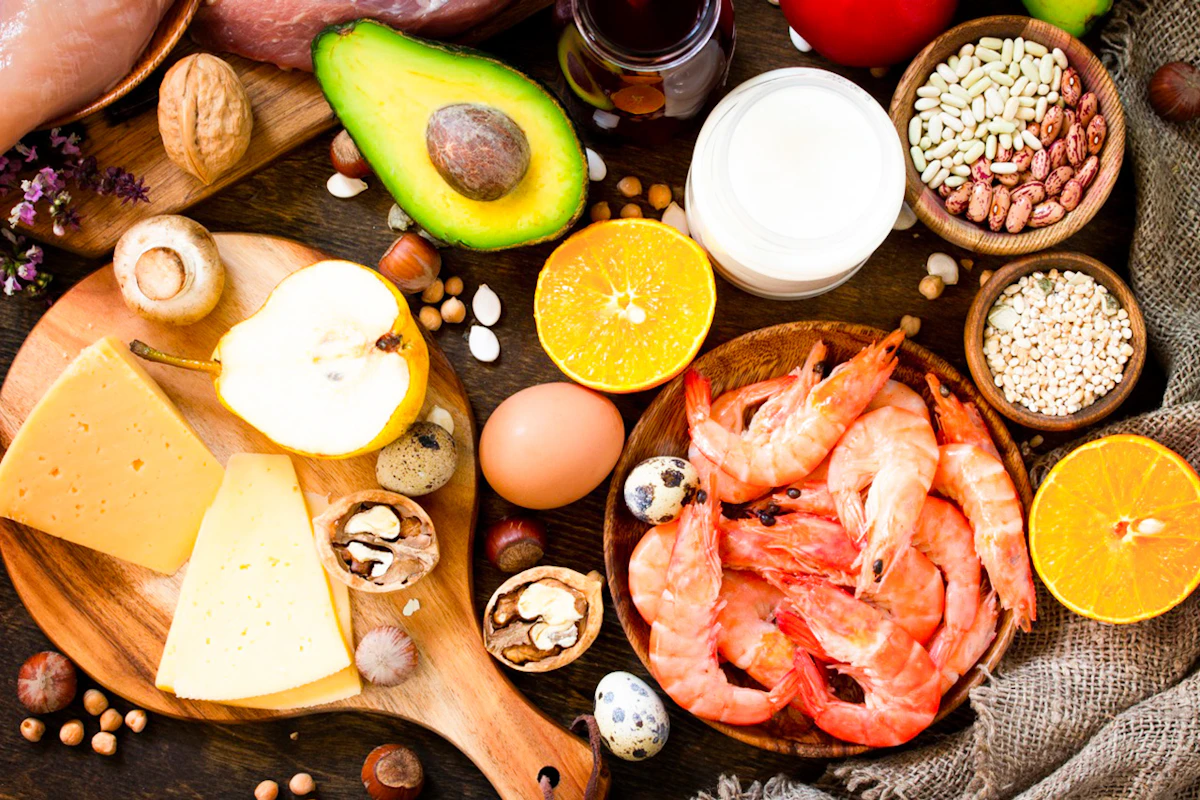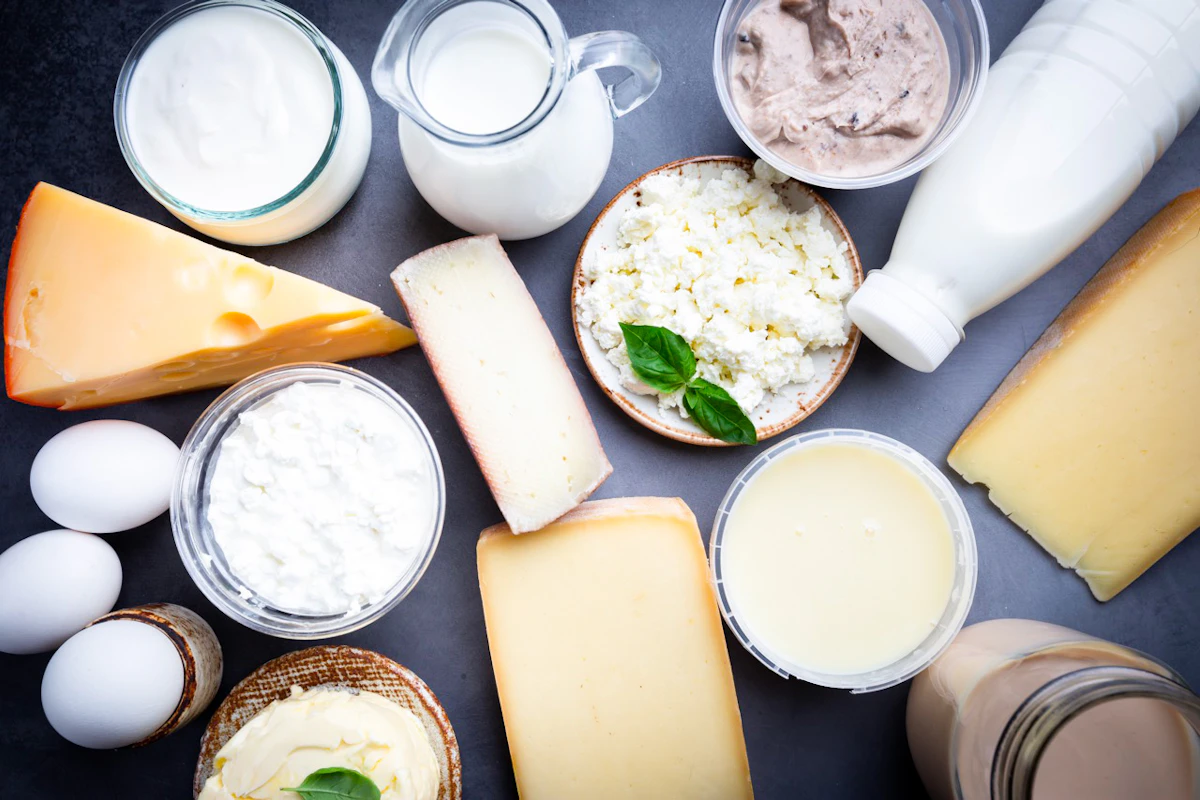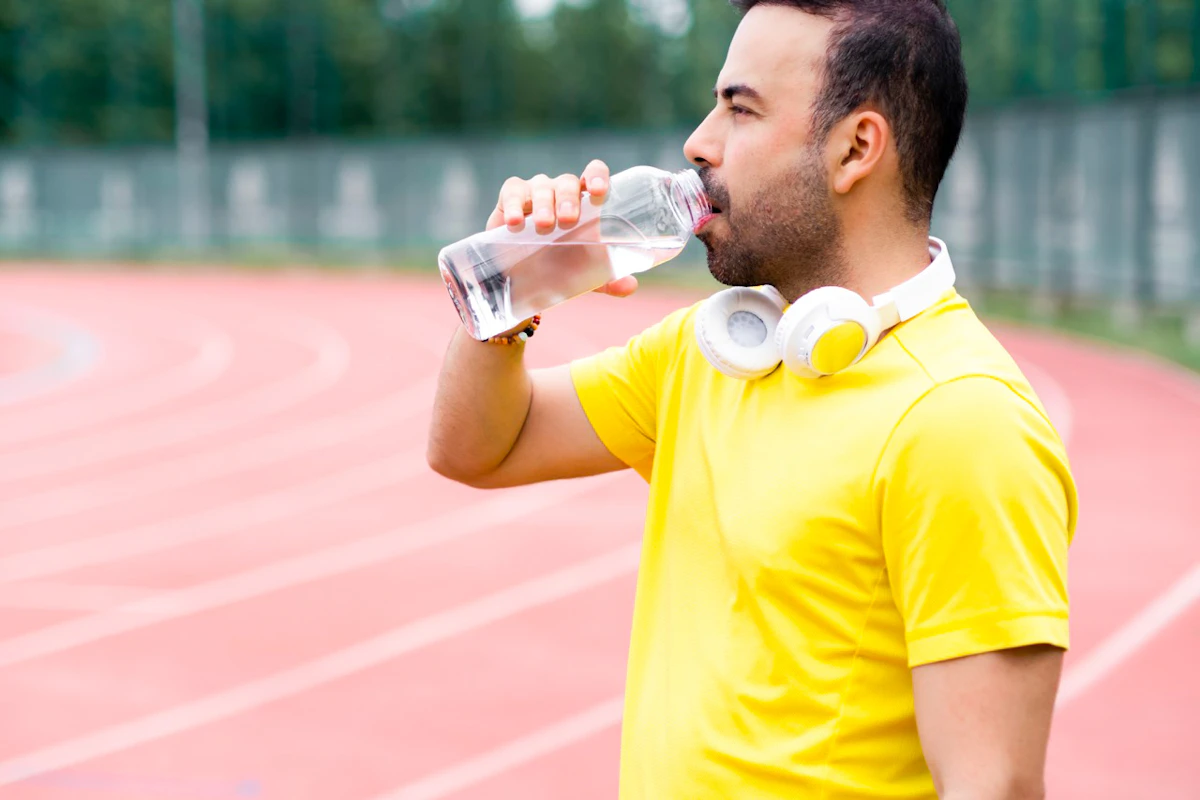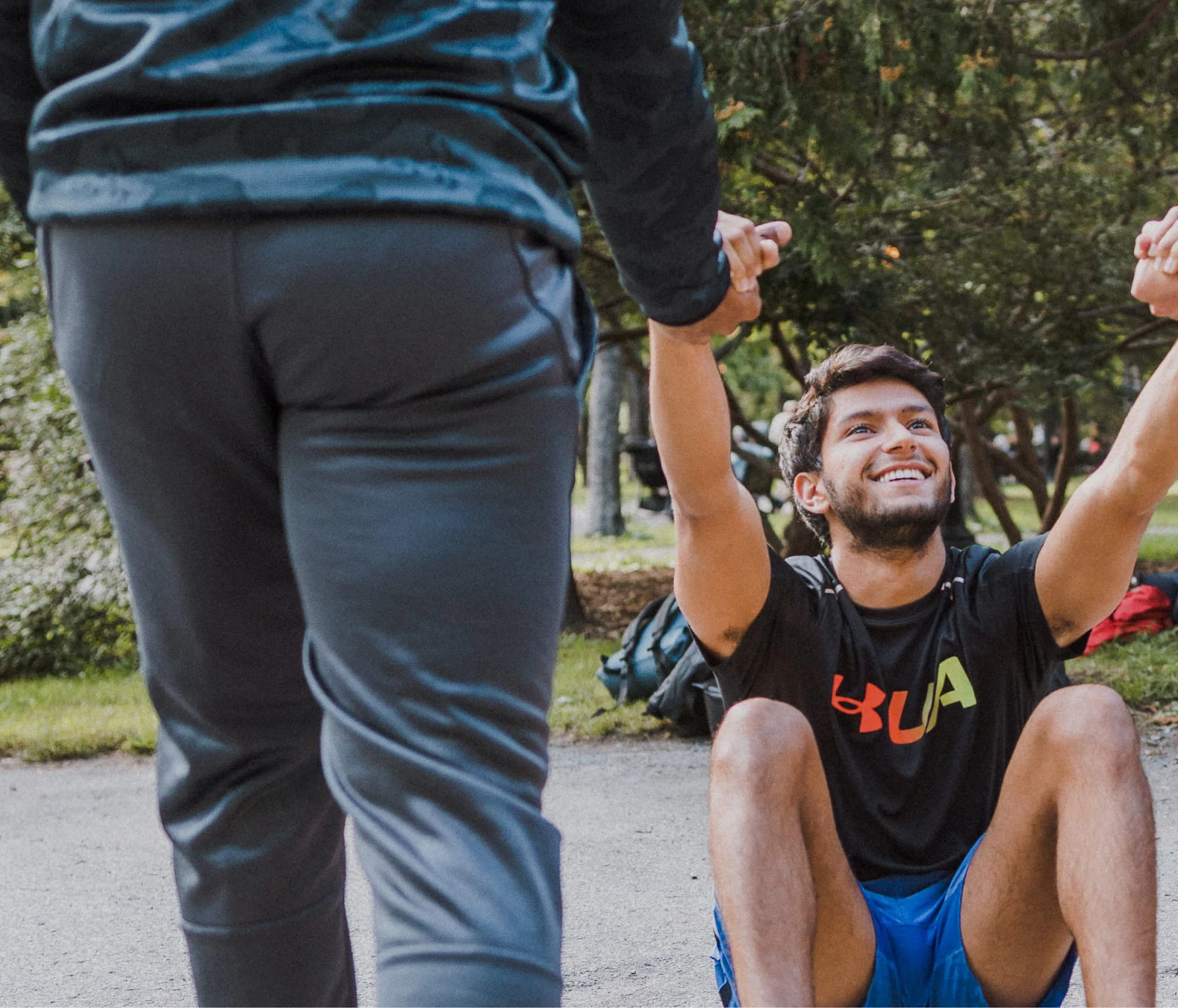
8 min read
Summary
1. Maximize your protein intake for recovery and muscle growth
2. Opt for healthy lipids as an energy source.
3. Ensure a sufficient intake of omega 3.
4. Maintain a balance between omega 6 and omega 3
5. Balance your carbohydrate intake for lasting energy
6. Diversify your consumption for a variety of vitamins and minerals
7. Don't forget magnesium for healthy muscles.
8. Be aware of your calcium intake for strong bones
9. Include natural sources of vitamin D
10. Hydrate properly for optimal performance

Receive advice from our passionate coaches!
Whether you're a beginner runner or a seasoned enthusiast, nutrition plays a crucial role in your athletic performance. In addition to enhancing your running results, a proper diet contributes to your overall health. Let's explore the fundamental principles of nutrition for running training in detail. We provide you with 10 tips for an ideal diet for running to maximize your performance in upcoming races.
1. Maximize your protein intake for recovery and muscle growth
Include enough proteins in your diet from meats, fish, eggs, legumes, and dairy products. Oilseeds such as almonds, walnuts, and hazelnuts are also sources of proteins. Target at least 1.3 to 1.5 g of protein per kg of your body weight if you train 3 to 4 times a week. Proteins promote post-exercise muscle repair for optimal recovery. It is important to ensure good nutrition in your post run. In running practice, varied nutrition allows the body to perform; proteins alone are not enough, don't forget to pair this intake with other nutrients below.
2. Opt for healthy lipids as an energy source.
A healthy lifestyle allows for minimizing certain injury risks in the long term. Lipids, found in avocados, nuts (peanut butter), and vegetable oils (olive oil, for example), are essential for various bodily functions: hormone regulation, absorption of certain vitamins, and both the constitution of the skin. Aim for about 1.2g of lipids per kg of your body weight if you train regularly and depending on the effort intensity. Lipid intake combined with omega 3 intake will help in your recovery process. This intake is necessary for any session type: long runs, 10km, or a trail. A few hours before departure or during the race, and depending on the effort intensity, the necessary energy varies, and it's important to maintain it at a certain level. Starting running? Discover our article to optimize your workouts !

3. Ensure a sufficient intake of omega 3.
Omega 3 are crucial for heart health, brain function, and tendon health. Fatty fish, flaxseed oil, canola oil, and olive oil are good source of omega-3. Include these foods in your diet to obtain these essential fatty acids, thus aiding recovery after exercise. While it's true that, with fatty fish at breakfast, it can be difficult to feel hungry, so don't hesitate to vary different vegetable oils during meals. This intake is also important when resuming training after an injury.
4. Maintain a balance between omega 6 and omega 3
By varying your intake at each meal (breakfast, lunch, snack, and dinner), you allow your body to achieve a complete balance. Ultimately, it's not about following a strict running diet but fueling your run. Among these adaptions: prioritize a balance between omega 6 and omega 3 by avoiding the excessive consumption of omega 6 found in processed foods and sunflower oils. A good ratio promotes better cardiovascular health.
5. Balance your carbohydrate intake for lasting energy
Carbohydrate intake is the main energy source, and your body needs this 'fuel' in order to complete his glycogen stores and succeed in your workouts. Carbohydrates come from whole grains, pasta, potatoes, and semolina. Aim for about 6 to 8g of carbohydrates per kg of your body weight on training days. Complex carbohydrates release energy gradually, maintaining a steady pace during your workout. In fact, in endurance sessions like running, the body consumes far more carbohydrates than in a low-intensity sports session. Therefore, it's important to eat accordingly to compensate for carb losses and avoid a deficit. For this, don't hesitate to eat around workouts (pre run and post run) and based on the session's theme to fuel properly your energy stores. For example, your pre-intake will be more significant for a hill training session than for a recovery workout.

6. Diversify your consumption for a variety of vitamins and minerals
Include a diversity of foods such as fruits, vegetables, dairy products, nuts, and legumes to get a range of important vitamins and minerals. These elements are vital for your bone health, muscle function, and immune system. This way, you'll prevent injuries. Vitamins and minerals are vital elements for numerous metabolic reactions (e.g., cardiac contraction, respiratory system activation, energy production...). in your body. Diversifying your diet to progress in running is one of the keys to success.
7. Don't forget magnesium for healthy muscles.
Magnesium is crucial for muscle contraction, energy production, and blood pressure regulation. Include sources such as nuts, seeds, green vegetables, and whole grains to maintain a good magnesium level. There are also magnesium-rich waters.
Magnesium intake can be considered both in diet and hydration for running. Your diet is part of your running preparation plan.
8. Be aware of your calcium intake for strong bones
Calcium is important for bone health and muscle contraction. Ensure adequate calcium intake to maintain good bone density and prevent stress fractures. Where is this mineral found? It can be consumed via dairy products, nuts (walnuts, cashew nuts, almonds...) and green vegetables. Depending on the effort intensity, your body will demand more or less of your muscle mass, so adapt your diet and hydration for running accordingly. Also, don't forget the notion of pleasure and include these foods in your afternoon snack in liquid (plant-based milk) or solid (dried fruits) forms.
Fun fact: If you're a woman, adequate calcium intake is crucial to maintaining your bone health and preventing osteoporosis.

9. Include natural sources of vitamin D
Vitamin D is crucial for calcium absorption and bone health. Seek sunlight (always with SPF 50 sunscreen!), consume fatty fish and dairy products to obtain sufficient vitamin D. To meet your vitamin D needs, you'll also need to meet your calcium needs (see previous paragraph) since without it, vitamin D absorption is considerably reduced. As you understand, good sports nutrition is built throughout the day and your meals.
10. Hydrate properly for optimal performance
Hydration is fundamental for your performance in running. Ensure you drink enough water throughout the day, especially before, during (with sports drinks), and after your run. Water is indispensable for maintaining a good body temperature and preventing dehydration. Indeed, in many endurance sports, water loss is significant in every workout session.

In conclusion, healthy nutrition is a central pillar of your success in running. By balancing proteins, lipids, carbohydrates, vitamins, and minerals in your diet, you will enhance your performance, promote recovery, and prevent injuries.
For sustained energy during running longer distances, focus on carbohydrate-rich foods. During your runs, readily digestible carbohydrate sources include energy gels and dried fruits, which can provide a quick boost. Aim to consume these around every 30 minutes during prolonged efforts to maintain your energy levels. Keep in mind that every bite brings you closer to your sports goals, whether it's a 10 km, a half-marathon, or improving your speed. Take care of your diet, as it is the key to going further, faster, and with more pleasure in your running. Happy running!
Article written by Mélanie Frechon, dietitian nutritionist and nutrition expert on Campus

Mélanie
share

Receive advice from our passionate coaches!
In the same category
Share this post
FAQ
Que manger avant une séance de course à pied ?
Que manger avant une séance de course à pied ?
Avant de courir, il est important de fournir à l’organisme une énergie durable sans alourdir la digestion. Le repas pré-course idéal est :
pris 2 à 3 heures avant l’effort
composé de glucides à index glycémique bas à modéré (pâtes complètes, riz, pain complet etc.)
pauvre en graisses et fibres (évite les plats lourds ou épicés)
avec une bonne hydratation
🍌 Pour une collation 30 à 60 minutes avant : banane mûre, compote, barre énergétique, pain d’épices.
Que manger après une course pour bien récupérer ?
Que manger après une course pour bien récupérer ?
L’objectif est de reconstituer les réserves énergétiques et de réparer les fibres musculaires :
✅ Glucides rapides : fruits, jus de fruits, barre énergétique
✅ Protéines : yaourt, œufs, boisson de récupération, smoothie protéiné
✅ Hydratation : eau, boisson de récupération, eau gazeuse riche en minéraux
Faut-il manger pendant une course ?
Faut-il manger pendant une course ?
Pour les courses de plus de 1h15 à 1h30, il est conseillé de s’alimenter en course afin d’éviter la fatigue et l’hypoglycémie.
🍫 À consommer pendant la course :
gels énergétiques ou pâtes de fruits
barres de céréales ou énergétiques
bananes coupées, compotes en gourde
boissons énergétiques isotonique
Quels aliments limiter quand on fait de la course à pied ?
Quels aliments limiter quand on fait de la course à pied ?
Certains aliments peuvent nuire à la performance ou provoquer des inconforts digestifs :
❌ aliments trop gras (fritures, sauces lourdes)
❌ produits très sucrés non adaptés (viennoiseries, sodas)
❌ alcool (déshydratation, récupération ralentie)
❌ excès de fibres juste avant une course (chou, légumineuses)
Bien sûr, limiter ne signifie pas renoncer. Le secret réside dans l'équilibre !
💡 Évite les aliments non testés juste avant une course importante.

